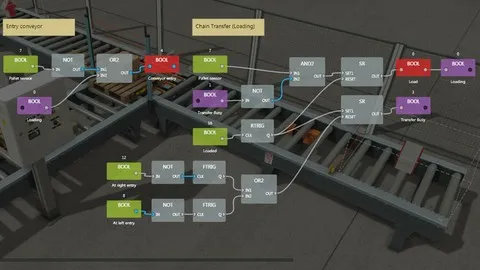
Designing and Implementing Solutions Using Google Machine Learning APIs 
This course provides an introduction to designing and implementing solutions using Google Machine Learning APIs, enabling organizations to leverage the power of ML to improve their products without the need for in-house expertise. ▼
ADVERTISEMENT
Course Feature
![]() Cost:
Cost:
Free Trial
![]() Provider:
Provider:
Pluralsight
![]() Certificate:
Certificate:
No Information
![]() Language:
Language:
English
![]() Start Date:
Start Date:
Self Paced
Course Overview
❗The content presented here is sourced directly from Pluralsight platform. For comprehensive course details, including enrollment information, simply click on the 'Go to class' link on our website.
Updated in [March 06th, 2023]
This course, Designing and Implementing Solutions Using Google Machine Learning APIs, provides an overview of the machine learning services suite available on the Google Cloud. It covers the features of each service, so learners can make the right choice about what service makes sense for their use case.
The course begins by introducing learners to speech-based APIs, which allow them to convert speech-to-text and text-to-speech with additional emphasis support using SSML. Learners will also learn how to call these REST APIs using simple Python libraries.
Next, learners will explore Natural Language APIs and see how they can be used for sentiment analysis and for language translation. They will also learn about the Vision and Video Intelligence APIs in order to perform face and label detection on images.
By the end of this course, learners will have the necessary knowledge to choose the right ML API that fits their use case and use multiple APIs together to build more complex features for their product. They will also have the skills to design and implement solutions using Google Machine Learning APIs.
[Applications]
It is suggested that those who have completed this course apply their knowledge to build complex features for their product by combining multiple Google Machine Learning APIs. They can also use the APIs to convert speech-to-text and text-to-speech, perform sentiment analysis, language translation, face and label detection on images.
[Career Paths]
1. Machine Learning Engineer: Machine Learning Engineers are responsible for designing, developing, and deploying machine learning models and algorithms. They must have a strong understanding of the underlying principles of machine learning and be able to apply them to real-world problems. They must also be able to develop and maintain software systems that use machine learning algorithms. The demand for Machine Learning Engineers is growing rapidly as more companies are looking to leverage the power of machine learning to improve their products and services.
2. Data Scientist: Data Scientists are responsible for analyzing large datasets and uncovering insights and patterns that can be used to inform decisions. They must have a strong understanding of statistics, mathematics, and computer science, as well as the ability to interpret and communicate complex data. Data Scientists are in high demand as companies look to leverage the power of data to gain a competitive edge.
3. Artificial Intelligence Engineer: Artificial Intelligence Engineers are responsible for designing and developing AI-based systems. They must have a strong understanding of the underlying principles of AI and be able to apply them to real-world problems. They must also be able to develop and maintain software systems that use AI algorithms. The demand for Artificial Intelligence Engineers is growing rapidly as more companies are looking to leverage the power of AI to improve their products and services.
4. Machine Learning Developer: Machine Learning Developers are responsible for developing and deploying machine learning models and algorithms. They must have a strong understanding of the underlying principles of machine learning and be able to apply them to real-world problems. They must also be able to develop and maintain software systems that use machine learning algorithms. The demand for Machine Learning Developers is growing rapidly as more companies are looking to leverage the power of machine learning to improve their products and services.
[Education Paths]
1. Bachelor of Science in Computer Science: This degree program focuses on the fundamentals of computer science, including programming, software engineering, and computer architecture. It also covers topics such as artificial intelligence, machine learning, and data science. This degree is becoming increasingly popular as the demand for skilled professionals in these areas continues to grow.
2. Master of Science in Artificial Intelligence: This degree program focuses on the development of intelligent systems and their applications. It covers topics such as machine learning, natural language processing, computer vision, and robotics. This degree is becoming increasingly popular as the demand for skilled professionals in these areas continues to grow.
3. Master of Science in Data Science: This degree program focuses on the analysis and interpretation of large datasets. It covers topics such as data mining, machine learning, and predictive analytics. This degree is becoming increasingly popular as the demand for skilled professionals in these areas continues to grow.
4. Doctor of Philosophy in Machine Learning: This degree program focuses on the development of algorithms and models for machine learning. It covers topics such as supervised and unsupervised learning, deep learning, and reinforcement learning. This degree is becoming increasingly popular as the demand for skilled professionals in these areas continues to grow.
Course Provider

Provider Pluralsight's Stats at AZClass
Pluralsight ranked 16th on the Best Medium Workplaces List.
Pluralsight ranked 20th on the Forbes Cloud 100 list of the top 100 private cloud companies in the world.
Pluralsight Ranked on the Best Workplaces for Women List for the second consecutive year.
AZ Class hope that this free trial Pluralsight course can help your Machine Learning skills no matter in career or in further education. Even if you are only slightly interested, you can take Designing and Implementing Solutions Using Google Machine Learning APIs course with confidence!
Discussion and Reviews
0.0 (Based on 0 reviews)
Explore Similar Online Courses

Snapchat Marketing: The Ultimate Step-by-Step Success Guide

Free PLC Tutorial - Connect I&O- A SoftPLC

Python for Informatics: Exploring Information

Social Network Analysis

Introduction to Systematic Review and Meta-Analysis

The Analytics Edge

DCO042 - Python For Informatics

Causal Diagrams: Draw Your Assumptions Before Your Conclusions

Whole genome sequencing of bacterial genomes - tools and applications

How I would learn Machine Learning (if I could start over)

Learn Data Science and Machine Learning on Microsoft Azure

Machine Learning for Everyone
 Related Categories
Related Categories
 Popular Providers
Popular Providers
Quiz
 Submitted Sucessfully
Submitted Sucessfully
1. Which of the following is NOT a Google Machine Learning API?
2. Which of the following is a feature of the Speech API?
3. Which of the following is NOT a feature of the Vision API?


Start your review of Designing and Implementing Solutions Using Google Machine Learning APIs